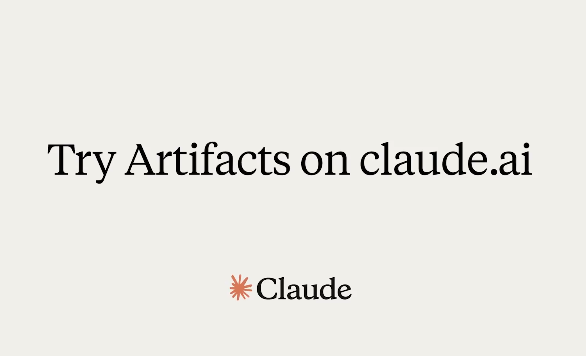Anthropic recently released the system prompts for its Claude series models, but it caused controversy due to the lack of description of the latest feature Artifacts. The researchers note that this lack affects a full understanding of the model's behavior. Anthropic responded that the Artifacts function was launched later than the system prompt, so it was not included, and promised to add complete information in the next few weeks. This incident highlights the importance of disclosure of AI model system prompts and the challenges developers face in terms of transparency.
Last week, Anthropic released the system prompts for its Claude series models, which are the model's operating instructions, but this release is incomplete. In response to this issue, Anthropic has promised to announce system prompts for its latest feature, Artifacts, in the coming weeks. Previously, researchers pointed out that tips related to Artifacts were not included in the latest release.

An Anthropic spokesperson confirmed that they will be "adding more details on system prompts, including information on Artifacts, in the coming weeks." It is worth mentioning that the Artifacts feature was just opened to all Claude users last week, which allows users to run code snippets next to Claude's chat interface.
Anthropic's release of the Claude system prompt was praised by the media as a company that is at the forefront of transparency, but researchers such as Mohammed Sahli believe that the company's statement lacks completeness, mainly because Artifacts' system prompt was excluded.
Anthropic explained that the system prompt for Artifacts failed to appear in last week's release, mainly because the feature was not available to all Claude users before last week. In fact, Artifacts was made public after the system prompted an announcement.
So, how important are system prompts?
Although AI model developers are not required to publish system prompts for large language models, the disclosure of these operating instructions has become "fun" for many AI enthusiasts. This not only helps developers better understand the expected behavior of the model, but also allows users to understand why the model rejects certain requests.
According to the system prompt file released by Anthropic, Claude3.5Sonnet is the most advanced version in the series, emphasizing accuracy and simplicity in answering questions. The model does not explicitly label information as sensitive and avoids the use of redundant filler words or apologies.
Claude3Opus is a larger model with a knowledge base updated until August 2023 that allows discussion of controversial topics and provides multiple perspectives, but avoids stereotypes and ensures a balance of perspectives. The smallest version, Claude3Haiku, focuses on speed and does not have behavioral guidance like Claude3.5Sonnet.
As for the system prompt of Artifacts, the specific content is not yet known. Sahli mentioned in his Medium post that the feature may be directed to solve complex problems in a systematic manner and focus on concise answers.
Highlight:
- ? Anthropic promises to release an Artifacts system prompt for the Claude model in the next few weeks to respond to researchers' questions.
- ? The Artifacts feature, which allows users to run code snippets next to Claude's chat interface, was just made available to all users last week.
- ? The disclosure of system prompts helps users understand the behavior of the model and encourages AI developers to be transparent.
All in all, this incident reflects the importance of disclosure of large-scale language model system prompts, and also reflects the issues of transparency and responsibility in the field of AI R&D. Anthropic's subsequent actions will have a significant impact on its reputation and user trust. We look forward to it completing the information as soon as possible and continuing to maintain its leading position in transparency in the AI field.